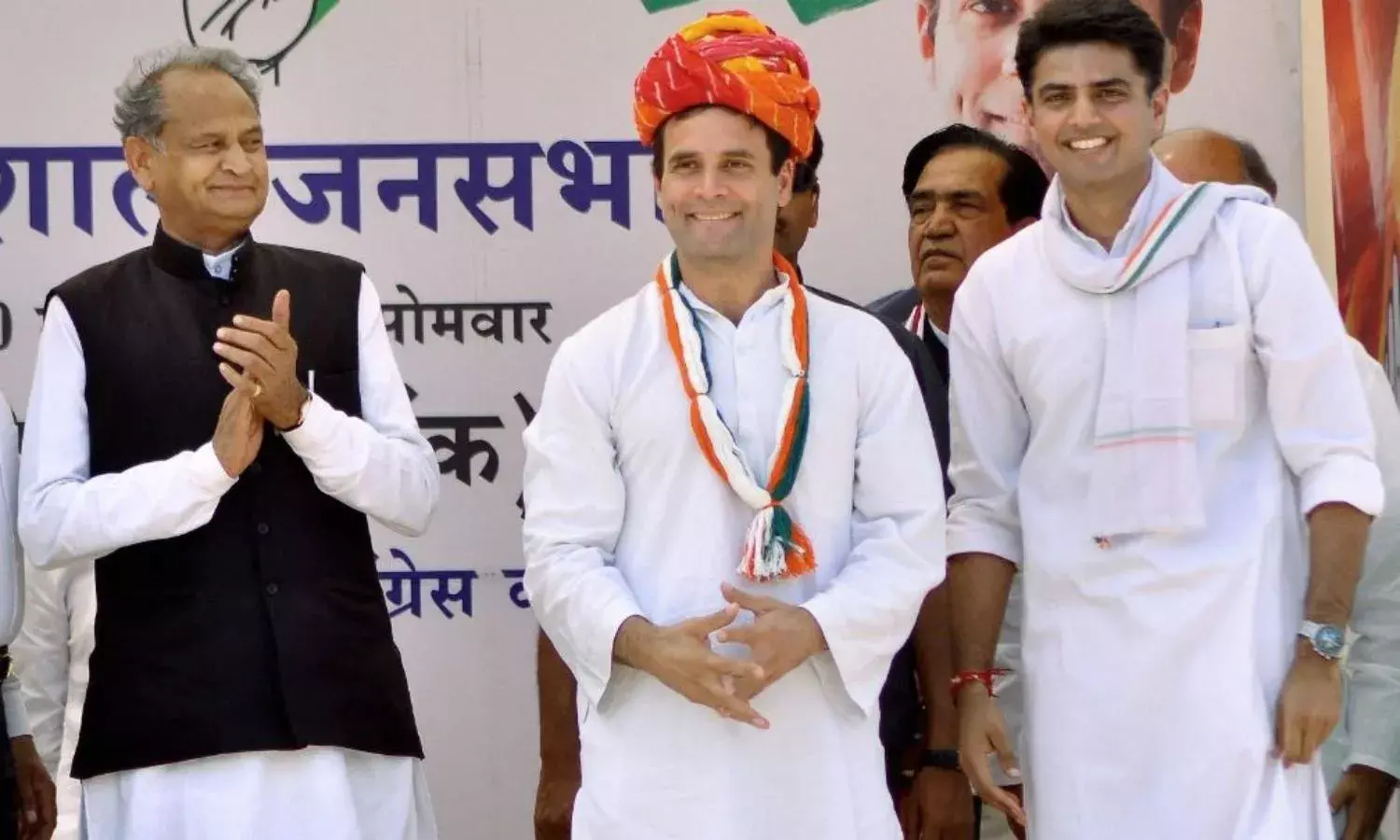Hindi Heartland Lost: Is this the Beginning of the BJPs End?
3 Lessons the Congress must learn to implement

NEW DELHI: Is this the beginning of the end? It could be, if the Congress that is now likely to form the government in three of the five states – and all the Hindi heartland states – changes tack and makes bold to project an agenda, instead of relying almost entirely on the anti-incumbency factor.
The BJP despite using its might of money and power was unable to hold on to any state, with a dismal performance in Telangana (2 seats) and Mizoram (1) even as it lost the majority in Madhya Pradesh, Chhattisgarh and Rajasthan.
Over 100 rallies by Uttar Pradesh Chief Minister Yogi Adityanath, 30 plus by the Prime Minister of India Narendra Modi, and the efforts of party president and erstwhile election mastermind BJP president Amit Shah failed to cut ice with voters swamped by unemployment, discrimination, targeted violence and actue economic distress.
The BJP has already begun putting gloss on what is a huge defeat at the hustings. But while this will be seen as little more than making excuses, the Congress’ victory shifts the onus onto it, to anchor a coalition for the 2019 Lok Sabha polls and ensure a BJP rout.
This cannot happen without work on the ground. Congress leaders themselves are aware that in these Assembly polls too the margin of victory would have been higher, and more decisive in Madhya Pradesh had the party sooner got its act together. Instead of skirting around the leadership issue, for instance, the Congress top brass could have supported Kamal Nath in Madhya Pradesh not weeks, but years before the elections.
Every single political leader knows – and several told The Citizen in separate conversations – that these Assembly elections have sounded the bugle for Lok Sabha 2019. And that the Congress victory not only indicates a shift in political preference but also places the party in position to anchor a larger coalition that would defeat the BJP.
But as a senior Congress leader said, this cannot happen unless the Congress learns from its mistakes and converts these lessons into strategy. The following three points emerged from the Congress and regional leaders spoken to:
1. The Congress cannot secure a decisive win if it follows the BJP trajectory. In these elections, particularly in Madhya Pradesh and Chhattisgarh, it followed a Hindutva-ward agenda with Congress president Rahul Gandh flitting from temple to temple to convince the voter that he was a good Hindu, and that his party wasn’t anti-Hindu as the BJP had been advocating. Their manifesto was also devoted in parts to cow protection and cow urine production instead of spelling out a clear cut pro-people alternative. If the people have to vote for Hindutva they will choose the BJP over the Congress. It is imperative for the Congress to strike out, and present the Constitution and the rule of law along with an alternative hard political agenda for the voters of India. In short, it has to spell out an issue based alternative.
2. The Congress must shed its overconfidence and arrogance to realise that the Lok Sabha polls cannot be won without a larger coalition with regional parties. It has to reach out – as it did briefly for the Karnataka Assembly – and bring in all larger and smaller parties into a coalition. This can be done statewise to start with, and emerge out of the elections as the mahagathbandhan. Taking a leaf out of the Left’s book in 2004 the Congress should anchor such a coalition, a task that would require wisdom, humility and maturity, given that most regional party leaders insist on walking on eggshells. Mayawati was not included in an alliance in UP, with a senior Congress MP telling The Citizen today that had she been, the alliance would have secured a decisive majority in the state. Besides, she would have been more responsive to a national coalition than she is now, preferring to stay away from an all-Opposition meeting held in New Delhi in the evening yesterday.
3. The Congress must sit with the regional groupings and work out a common minimum programme around which these parties can coalesce. This is imperative not just to avoid confusion, but to convince voters that the coalition won’t just stop at ousting the BJP – something PM Modi can be expected to play on to get sympathy – but has an agenda for governance addressing their demands. Agrarian distress, Dalits, secular government were some of the issues the leaders underlined.
This, said the more optimistic, is the beginning of the BJP’s end “provided we come together and work together in a convincing manner”. These victories have established the Congress party now as the anchor for the forthcoming coalition. As a senior Congress MP said, “I am not going to say ‘the leader’ as we must play our cards properly, but it is now clear that we might not be leading, but definitely anchoring, the grand alliance to get rid of the BJP.”
Interestingly, even regional leaders including from the DMK and the JD(S) were categorical that “we are seeing the last days of the BJP, but we have to be vigilant and alert and united.”



